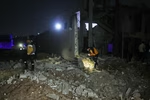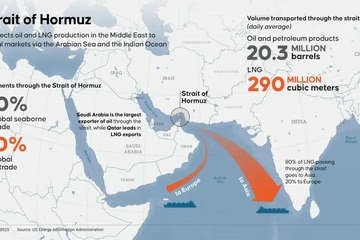Munira Subasic: Ratko Mladic is an enemy to Serb mothers as well

Ratko Mladic is not an enemy to the Bosniak and Croat mothers only but to the Serb mothers as well, said Munira Subasic, the head of the Mothers of Srebrenica and Zepa Enclaves movement, speaking from The Hague where the former Bosnian Serb military leader will hear the final verdict on the war crime and genocide charges.
Oglas
Subasic does not believe that the wartime commander, whom the UN court for war crimes in former Yugoslavia initially sentenced to life in prison for genocide, war crimes, and crimes against humanity in the Bosnian war of the 1990s, will be released in the final judgement.
“So far the court worked correctly and justly. But, if that happens then it will go to the pillar of shame, and I don't think anyone wants that to happen,” she told N1.
“We expect the justice will be served. Even if he had thousands of lives, if each and every is taken from him, it would not make it up to the victims for what he did. He is not only the enemy to the Bosniak and Croat mothers, he is the enemy to the Serb mothers as well. Because he made many mothers sad,” Subasic added.
The Appeals Chamber of the International Residual Mechanism for Criminal Tribunal, a UN court for the war crimes in the former Yugoslavia, will hand down today the final verdict in the case of Ratko Mladic, who was initially sentenced to life in prison for genocide, war crimes and crimes against humanity in Bosnia and Herzegovina during the war of 1990s.
The UN court, formerly called the International Criminal Tribunal for former Yugoslavia (ICTY) sentenced Mladic on November 22, 2017, in a first-instance verdict to life imprisonment.
Mladic was a Bosnian Serb military leader during the 1992-95 war in Bosnia and Herzegovina and trial judges found he was responsible for overseeing the murder of more than 8,000 Muslim men and boys in the eastern Bosnian town of Srebrenica in 1995, known as Srebrenica genocide.
Trial judges found Mladic was responsible for ethnic cleansing campaigns against Bosnian Muslims and Croats, and murdering and terrorising civilians in the Bosnian capital Sarajevo during a 43-month siege, as part of a plan to forge a “Greater Serbia” out of parts of the former Yugoslavia.
Mladic was acquitted of genocide charges in six Bosnian municipalities in 1992.
Both the prosecution and defence filed appeals to the verdict.
Kakvo je tvoje mišljenje o ovome?
Učestvuj u diskusiji ili pročitaj komentare
Oglas
Kakvo je tvoje mišljenje o ovome?
Učestvuj u diskusiji ili pročitaj komentare
Oglas
NAJČITANIJE
Oglas
Oglas
Najnovije
Oglas
Oglas





 Srbija
Srbija
 Hrvatska
Hrvatska
 Slovenija
Slovenija


























































